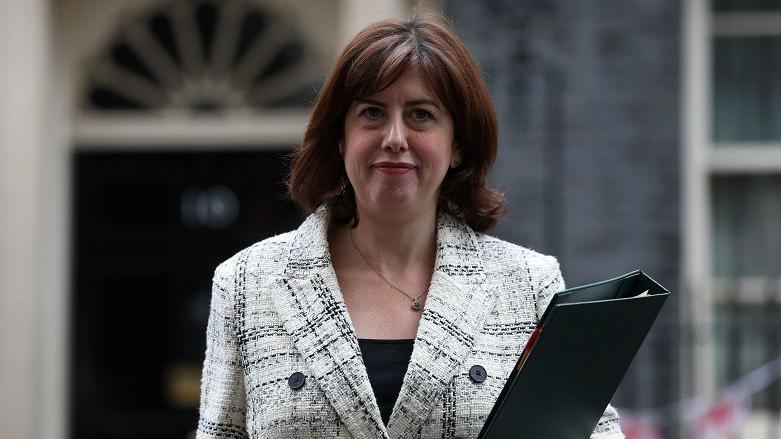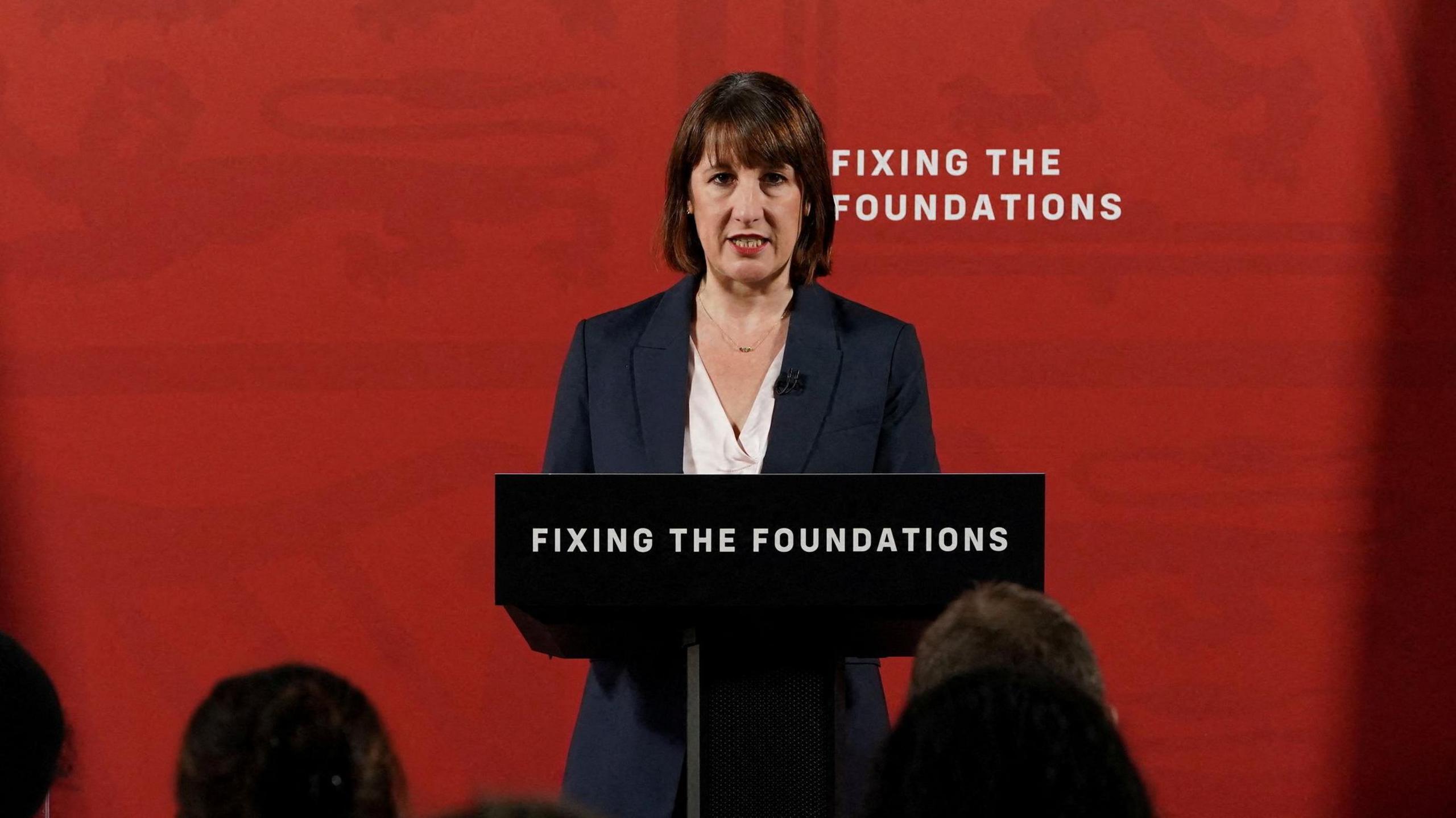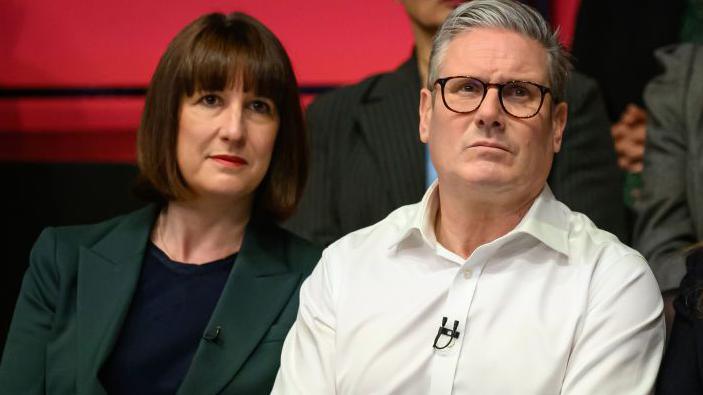Winter fuel payments had to be scrapped, minister insists

- Published
The government will not reverse its decision to scrap winter fuel payments, the leader of the House of Commons has said.
About 10 million pensioners not receiving pension credit will lose the payment of up to £300 from mid-September, with Chancellor Rachel Reeves blaming a £22bn "black hole" in public finances for the decision to restrict the allowance.
MPs and charities have criticised the move in recent days, with the Conservatives and Liberal Democrats pushing for a Commons vote.
But Lucy Powell told BBC Breakfast she could not see a scenario in which Ms Reeves abandons her plan, and warned there could have been a "run on the pound" had the government not taken action on public finances.
Ms Powell acknowledged that losing the payment would make things even tighter for pensioners, but defended the government for taking "really difficult decisions" such as targeting winter fuel payments.
"The reason we are doing that is because the deficit was much higher than anyone thought, spending was higher than anyone thought," she said.
"If we hadn't taken that action we'd have seen a run on the pound, the economy crashing and the people who pay the heaviest price for that are the poorest, including pensioners and those on fixed incomes. That stability is really important for living standards."
She said Labour's commitment to the state pension triple lock and focus on economic stability would protect pensioners in the long term.
Asked if she could see any scenario where the winter fuel payments decision could be reversed, Ms Powell said: "I don't."
Pressed over whether she agreed with Ms Powell's comments about "a run on the pound", Education Secretary Bridget Phillipson told BBC Breakfast: "Had we not got to grips with the public finances overall then there could have been serious consequences for the economy."
However, she added that the Commons leader was "making a wider point about the need to get the public finances under control and the winter fuel allowance was element of that".
The government's resistance to rethinking the policy comes after a slew of criticism in recent days.
On Thursday, Liberal Democrat leader Sir Ed Davey joined the Conservatives in calling for a Commons vote on scrapping winter fuel payments, describing it as the government's first big mistake.
Labour MPs loyal to Sir Keir Starmer have told the BBC of their growing unease over the policy, with one senior backbencher branding the move a "mean means test".
Thousands urged to claim pension credit

Lucy Powell succeeded Penny Mordaunt as leader of the House of Commons after July's election
Ms Powell also highlighted a campaign being launched by the government to encourage retired people to check if they are eligible to receive pension credit.
Pension Credit Week of Action comes as the Department for Work and Pensions (DWP) said about 880,000 eligible pensioners are missing out on pension credit, which on average amounts to £3,900 a year.
Pensioners with a weekly income below £218.15 for a single person or £332.95 for a couple are being urged to use the DWP's online calculator to determine their eligibility for payments.
People with a severe disability, carers and those who are responsible for a child or a young person who lives with them could receive additional money, the government said.
Meanwhile, Age UK, the charity whose petition calling for the government to halt its winter fuel payment policy has been signed by more than 460,000 people, said on Sunday it had written to Ms Reeves.
The letter specifically urged her to extend the payment to two million further pensioners by also including those who receive housing benefit, council tax support, attendance allowance and carers’ allowance.
Caroline Abrahams, charity director at Age UK, told the Observer, external it was aiming to "safeguard" the estimated two million pensioners "who will experience severe hardship" by losing the payment.
No clues ahead of 'painful' Budget
Ms Powell would not be drawn on which taxes Ms Reeves might raise in her forthcoming Budget on 30 October.
Inheritance tax, capital gains tax, fuel duty and changes to tax relief on pension contributions have all been mooted as possible taxes that may go up.
The prime minister conceded the Budget will be "painful" in his speech last week, and said those with the "broadest shoulders should bear the heavier burden".
Ms Powell repeated Labour's long-standing commitment not to raise income tax, National Insurance and VAT, including reversing National Insurance cuts brought in recently by the Conservatives.
She said: "All other matters are for the chancellor and she will be looking at those in detail."
Related topics
- Published29 August 2024

- Published24 October 2024
